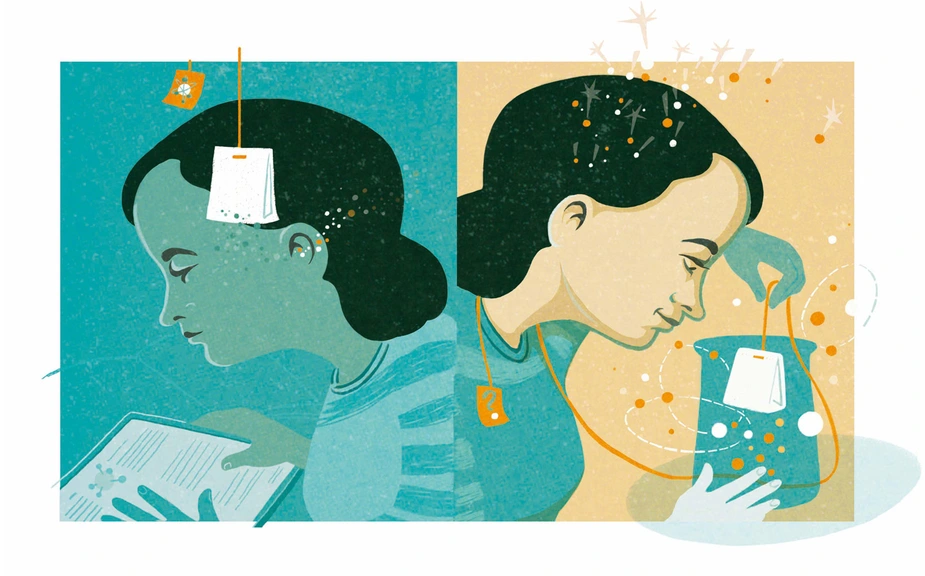Excellently managed – excellently outdated – excellently designed!
Essay by Jakob Nolte, biology student and the winner of the “Jugend forscht” national young science competition
Science is “Wissenschaft” in German, which literally means “creating knowledge”. The German word “Ausbildung” for education or training implies a space to develop interests and skills. When taking a closer look at education-related words in German, we realise it cannot just be about that. The German language is astonishingly accurate in depicting the chronology of the process of human insight. It also works in English.
We see through something (the eyes), we fully grasp it (the hands), we understand (legs), and realising something means putting it into practice as well as understanding it clearly (the entire body).
At the level of language, it is clear how important it is to not only “create knowledge” but also to relate it to what we can see, what we can touch, and to make use of our body and mind in unison: Insight should not be limited to language when it trickles down from one level to the next but should reveal itself on different levels.
We should ask ourselves, whether, during a time when our mental capacities are massively overburdened, the concept we have hitherto used to impart the above-mentioned skills isn’t already doomed to fail. A concept that, at its core, conceives the human mind as a vessel to be filled, and expects individuals to become increasingly capable of acting independently, the more filled they become.
At the very least, joy and curiosity soon fall by the wayside when the responsible institutions do nothing to grasp the essence of human beings. Initially, lecturers might still find excited young people sitting in front of them. By the time they reach the end of high school, however, many are already burnt out. And off they go with the vessel-filling, a practice that does not feel the need to fully understand those present or allow for the dynamism of human learning.
Instead of being pushed to new heights, everyday practice in education still follows the traditional meaning of another German word for education, “Erziehung”, which literally means “to pull up”. Most of what is offered to us as compulsory education, does it even serve us people? Or does it, in fact, stem from a system of the same and mentally draining mechanisms that are just as repetitive as the student registration numbers that pass through them? No! The human mind is not to be filled! It is a fire waiting to be ignited into a conflagration and all the education system would have to do is to ensure that there is enough flammable material nearby.
In the long run, there will not be excellence in research if people cannot reach their full level of potential and self-reliance. Science will be doomed to emulate the pressures of the economy and the society, losing its own identity. At the same time, we will only do justice to science if intellectual development and the quest for finding answers to pressing questions of life (and survival) are not only accessible to a small fraction of the population. And if all people are capable of finding fullness, meaning, and reflective insight in their own lives and in their very own personal way.
We desperately need a new scaffolding of values to get us through the ecological crisis in its many facets. Science must understand and re-adjust its multi-dimensional role here. Development not only solves problems but also causes new ones. Only a society that knows how to stand tall, can give us direction.
Excellence means looking at what is, with the blinders off, a quest for truth—independent of special interests, creative, and wary of the idiosyncrasies of human personalities and their environment. Excellence also means being touched by your subject matter and a readiness to change through knowledge. Excellence means studying and exploring for the sake of the subject, not the sake of a career. Excellence means making a difference and it grows not through funding alone but through those who mutually support each other.
If excellence really meant all this and this were the way we put it into practice, we could reverse the negative outlook for the future of life on this planet. This is what we should focus on as a society—to gain the strength that we need to initiate a process of change. That we need to not only survive but to give new vitality to our lives at an ecological and a human level.
Excellence is something we can only create together!
Jakob Nolte is a biology student and the winner of the “Jugend forscht” national young science competition as well as the award winner for most original work. He has been researching plants since his childhood and works on the subject of plant extinction. Moreover, he is involved in several projects related to his research activity for the protection of biodiversity in cooperation with numerous institutions and companies.
